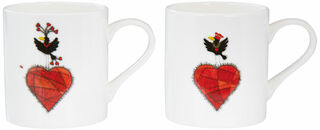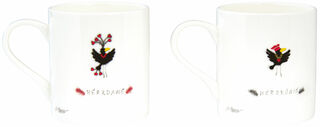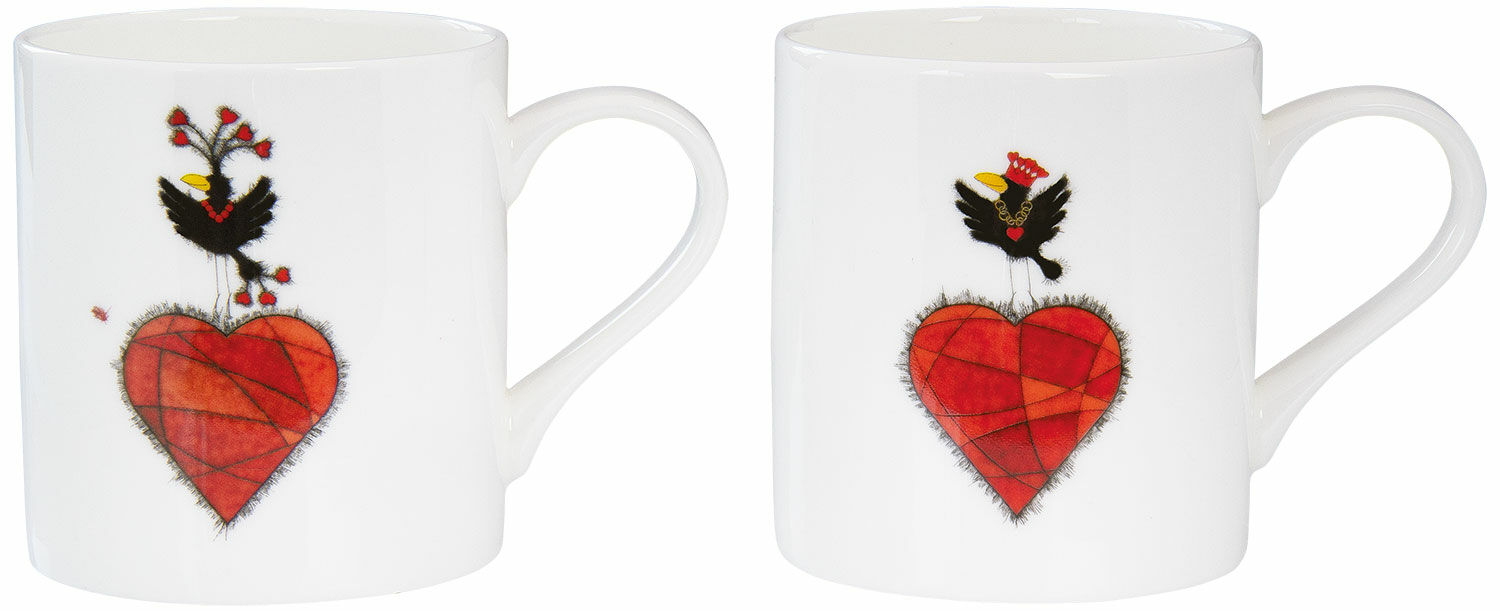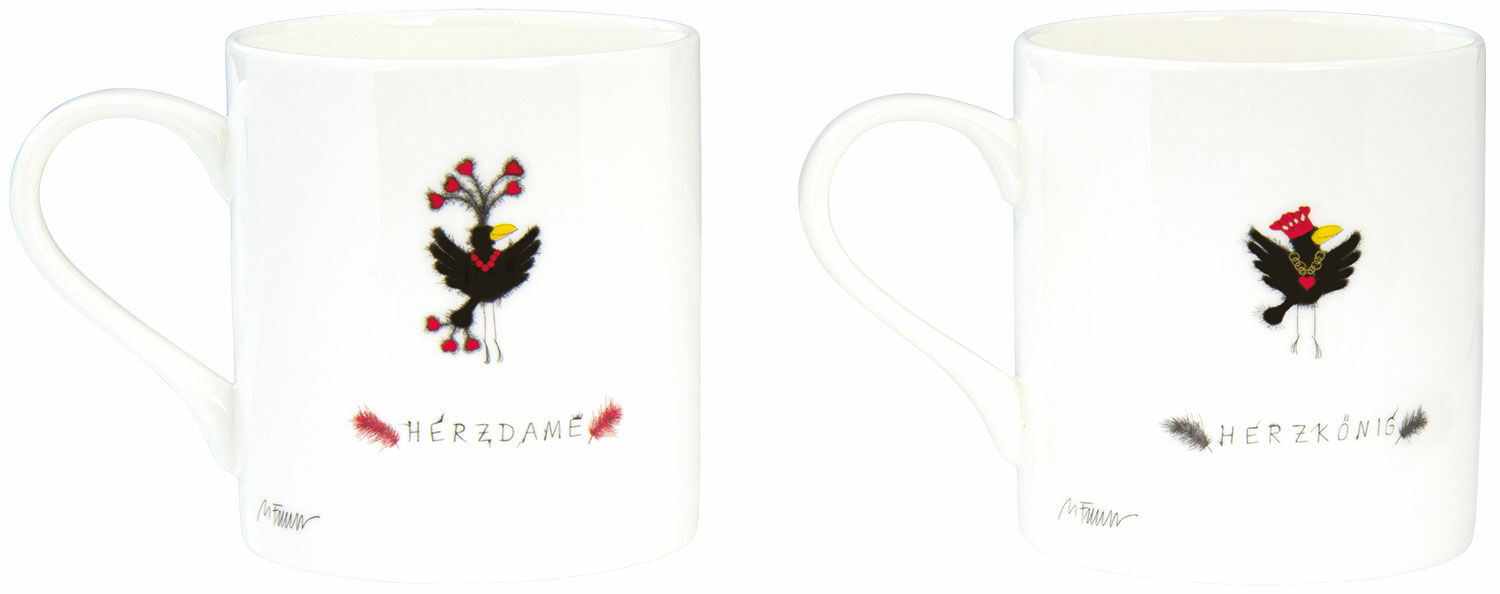Set of 2 mugs "Queen of Hearts" & "King of Hearts", porcelain
Set of 2 mugs "Queen of Hearts" & "King of Hearts", porcelain
Quick info
ars mundi Exclusive Edition | signed | porcelain | capacity 0.36 l each | dishwasher safe | only available as a set
Detailed description
Set of 2 mugs "Queen of Hearts" & "King of Hearts", porcelain
Whether for tea or coffee, these two mugs made of fine bone china porcelain will delight those close to your heart. Height 9 cm each. Diameter 8.2 cm each. Weight 0.4 kg each. Capacity 0.36 l each, dishwasher safe. Only available as a set. ars mundi Exclusive Edition.
Customer reviews
Rundum zufrieden.
Sehr schöne Tassen
Hochwertiges Porzellan
Sehr schöne Becher, wie beschrieben. Direkter Versand - alles tip top! :-)
Gutes Produkt; prompte Lieferung. Alles ohne Probleme.
Wirklich optimale kreative Produkte mit denen ich endlich mal wieder
bei meiner Frau punkten konnte !
alles super wie immer
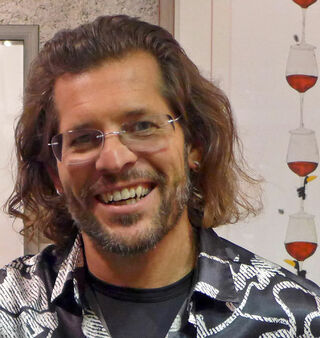
About Michael Ferner
For Michael Ferner, humour is very important. Born in Salzburg, Austria, in 1969, the painter, draughtsman, illustrator and caricaturist is a master of the brush and colour thus humorous and cheerful works are created by his hand. He delights the art scene with the lightness of his stroke, which is created by blowing the ink across the paper with his breath.
His theme is life. The impression, the fascination of the moment is what counts. very ordinary moments are captured in his art. Aeroplanes, cars, clowns, musicians, sea creatures or, for example, "gammy-legged crows". With a precise observer’s eye, the alienator and humourist puts colour on paper.
He exhibits his paintings in Germany and Austria, but also in England, Dubai and the USA.
Graphic or sculpture edition that was initiated by ars mundi and is available only at ars mundi or at distribution partners licensed by ars mundi.
Ceramic product made of kaolin, quartz and feldspar.
Porcelain is formed by turning or pressing and figurative objects are cast. Complex objects have to be cast in separated steps and sections and then "assembled". After the moulding, the pieces are dried and "annealed" at about 900 °C. Next, the glaze will be applied and fired at temperatures between 1,240 °C and 1,445 °C. In renowned manufactures, the porcelain is painted by hand whereby each colour has to be fired individually and in compliance with narrow temperature tolerances.
Porcelain was invented in China and became widespread in Europe from the 16th century onwards. The first European porcelain factory was founded in Meissen, Germany in 1710.
Other famous European porcelain factories include Fürstenberg, Höchst, Schwarzburger Werkstätten, Lladró, Nymphenburg, KPM, Augarten, Sèvres, Limoges, Royal Copenhagen, Worcester. Individual factories label their products with their personal porcelain stamps so that for the collecter it is easy to identify their origin.

